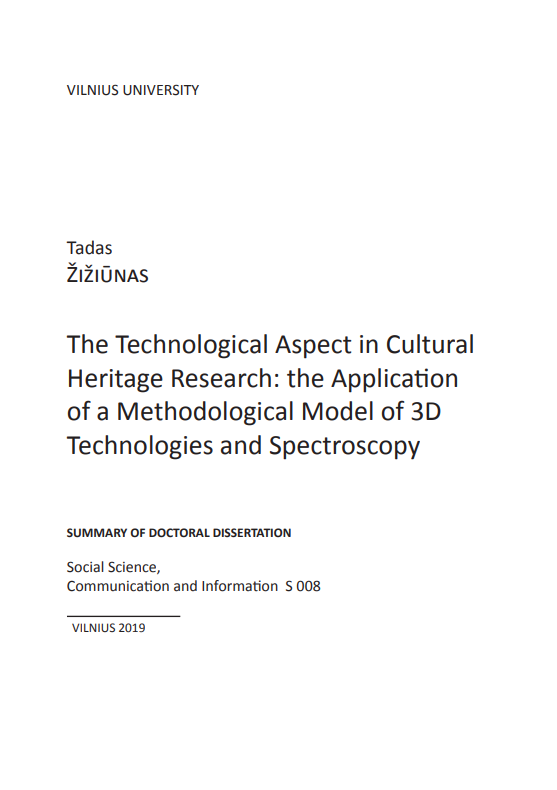Digital research is a relatively new approach in information gathering, analysis, and communication. It may provide the foundations for us to present new technologies and methodologies, which in turn may enrich the way new knowledge is developed in science. In this context, digitalization no longer describes the possibilities of making information and communication processes better by converting something stored in an analog format into a digital copy, but rather that digitalization can produce new methods for the analysis of digital content.
Cultural heritage is not an exception; therefore, new information-communication technologies (ICT) create new ways of digital research. As a result, scholars working within the fields of humanities and social sciences (HSS) regard digital research as a new scientific subject. The implementation of new technological solutions and methodologies in the field of heritage studies is a fine goal of this dissertation. According to K. Kardelis, “the goal of scientific research – to explore and understand the essence and origin of the processes, and to implement new methods for the rational exploitation of material and immaterial resources.”

